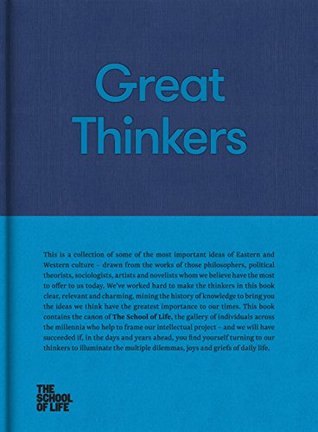More on this book
Community
Kindle Notes & Highlights
What makes work really satisfying, Epicurus believed, is when we’re able to work either alone or in very small groups, and when it feels meaningful, when we sense that we’re helping others in some way or making things that improve the world.
Andira Avlis liked this
He proposed that, contrary to what one might expect, it isn’t money the rich really care about. It is honour and respect. The rich accumulate money not because they are materially greedy, but because they are emotionally needy. They do so primarily in order to be liked and approved of. This vanity provides wise governments with a highly useful tool. Rather than taxing the rich, these governments should learn to give the rich plenty of honour and status – in return for doing all the good things that these narcissists wouldn’t normally bother with, like funding schools and hospitals and paying
...more
He simply believed that the capitalist system forces everyone to put economic interests at the heart of their lives, so that they can no longer know deep, honest relationships. He called this psychological tendency Warenfetischismus (commodity fetishism) because it makes us value things that have no objective value and encourages us to see our relationships with others primarily in economic terms.
Certainly he was aware of the extraordinary success stories, but he was also a statistician who knew that the rags-to-riches tales were overall so negligible as not to warrant serious attention by political theorists. Indeed, to keep mentioning them was merely a clever political sleight of hand designed to prevent the powerful from undertaking the necessary task of reforming society.
When addressing major decisions about the allocation of resources, to overcome our own bias, we need only ask ourselves: ‘how would I feel about this issue if I were stuck behind the veil of ignorance?’ The fair answer emerges directly when we contemplate what we would need in order still to be adequately positioned in the worst-case scenario.
Benedict didn’t think that good art and architecture were luxuries: these were vital supports for our inner lives. He understood that we were likely to take our cue about how to be inside ourselves by looking around at the moods emanating from the walls around us. That’s why Benedictine monasteries have long employed the best architects and artists, from Palladio and Veronese to John Pawson in our own times.
But what disturbed Tocqueville was the way in which, in the United States, people of no distinction, in terms of education, skill, experience or talent, would refuse to defer to what Tocqueville called their ‘natural superiors’, as he put it. They were inspired – he believed – by an unwillingness to bow before any kind of authority. They refused to think that someone could be better than them just because they had trained to be a doctor, studied the law for two decades or had written some good books.
In Winnicott’s scheme, adults who can’t be creative, who are somehow a little dead inside, are almost always the children of parents who have not been able to tolerate defiance, parents who have made their offspring ‘good’ way before their time, thereby killing their capacity to be properly good, properly generous and kind (for the compliant personality is in truth only a fake version of a responsible, giving self).
Moreover, Jacobs believed that density was part of how cities remained safe spaces. In dense neighbourhoods with relatively short buildings, she argued, everyone knows everyone and they know what is and isn’t normal (this knowledge is a form of what she called ‘social capital’). As a result, the neighbourhood has what Jacobs termed ‘eyes on the street’, an innate communal awareness and safety mechanism. In a city with giant skyscrapers, Jacobs wrote, ‘nobody … was going to have to be his brother’s keeper anymore.’ Such urban designs destroy the very nature of cities, their lifeblood of
...more
He is trying to get us to practise a mental habit: feeling that the things we do in our daily life are interesting and worthy of note. Warhol wants us to realise that we are already living an appealing life – to stop being down on ourselves, and ignoring ordinary experiences – filling up a car with petrol, dropping something off at the dry cleaners, microwaving a premade meal … We don’t need to fantasise about other places. We just need to see that the things we do all the time and the objects around us have their own merits and are enchanting in their own ways.
a Proustian moment: a moment of sudden involuntary and intense remembering, when the past promptly emerges unbidden from a smell, a taste or a texture. Through its rich evocative power, what the Proustian moment teaches us is that life isn’t necessarily dull and without excitement – it’s just that one forgets to look at it in the right way: we forget what being alive, fully alive, feels like.
Her great feminist rallying cry, A Room of One’s Own, culminated in a specific, political demand: in order to stand on the same intellectual footing as men, women needed not only dignity, but also equal rights to education, an income of ‘five hundred pounds a year’ and ‘a room of one’s own.’


